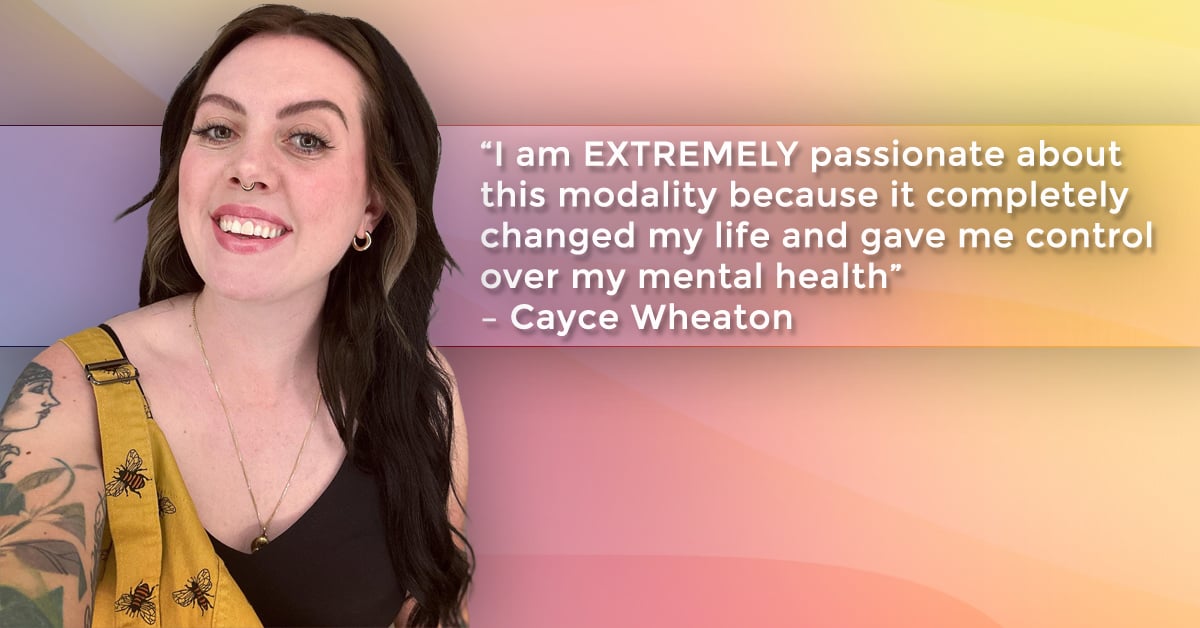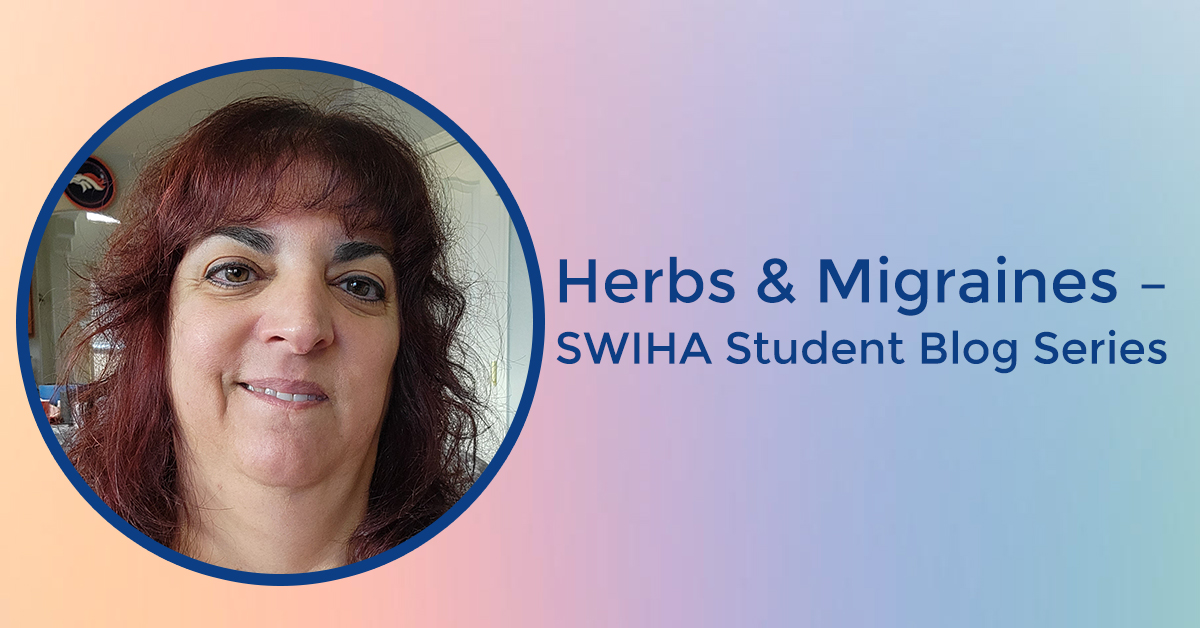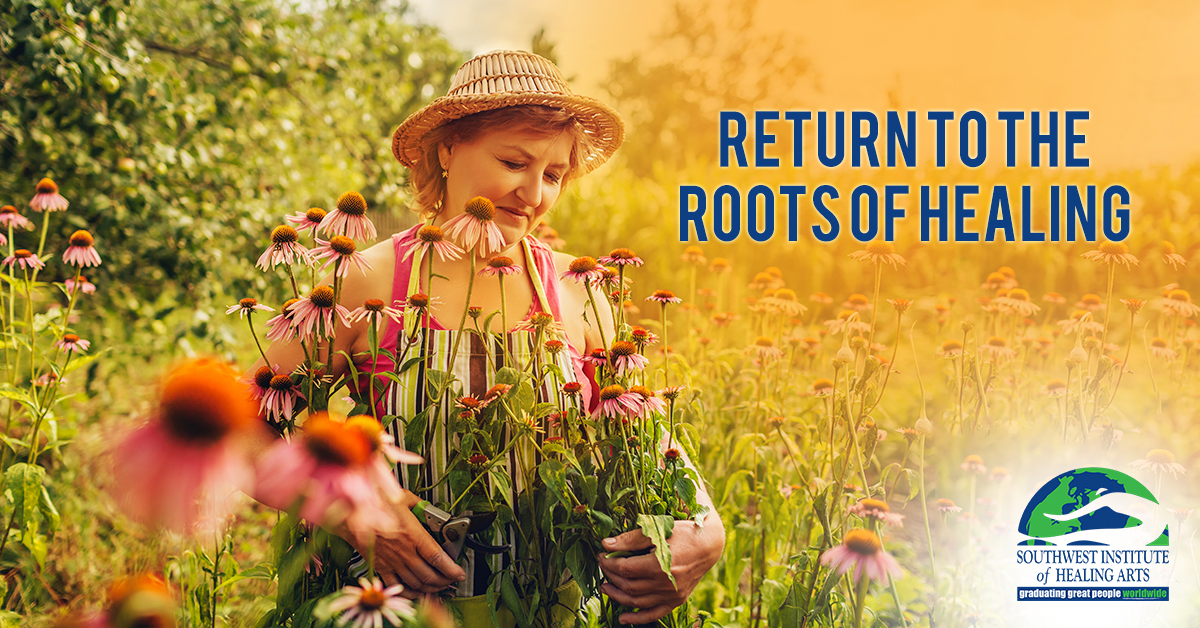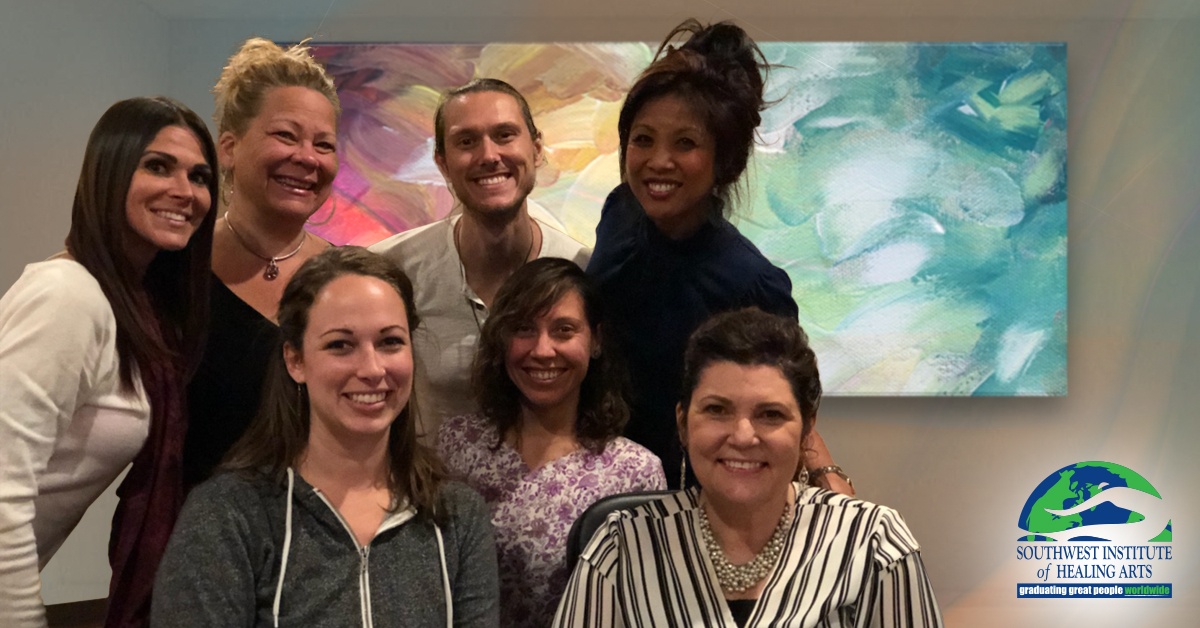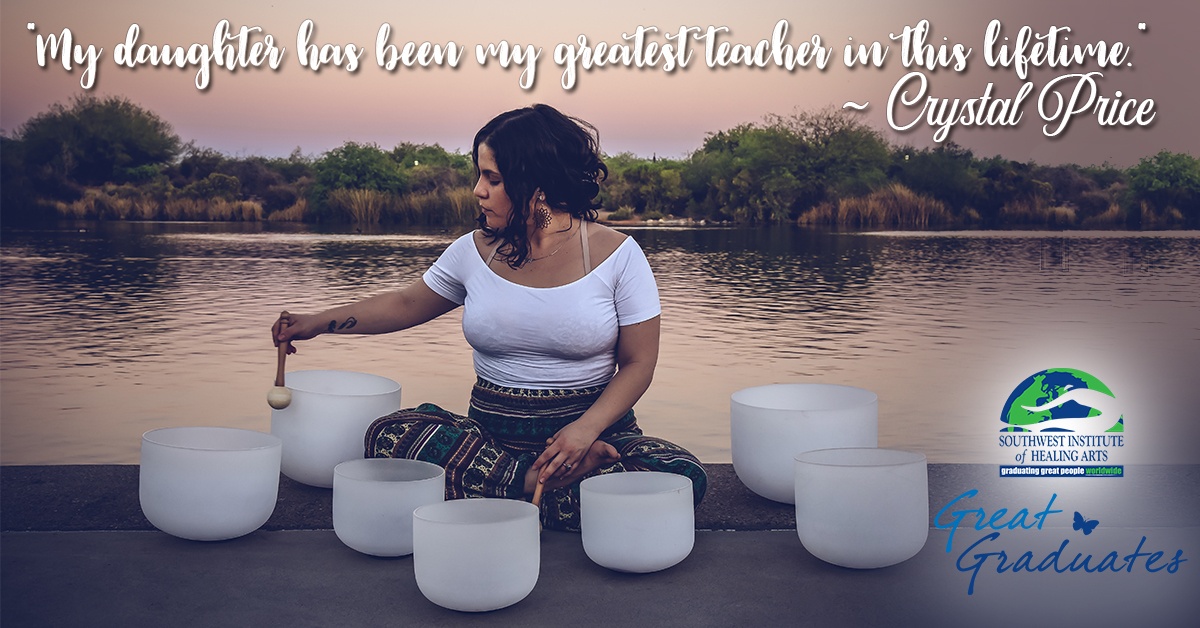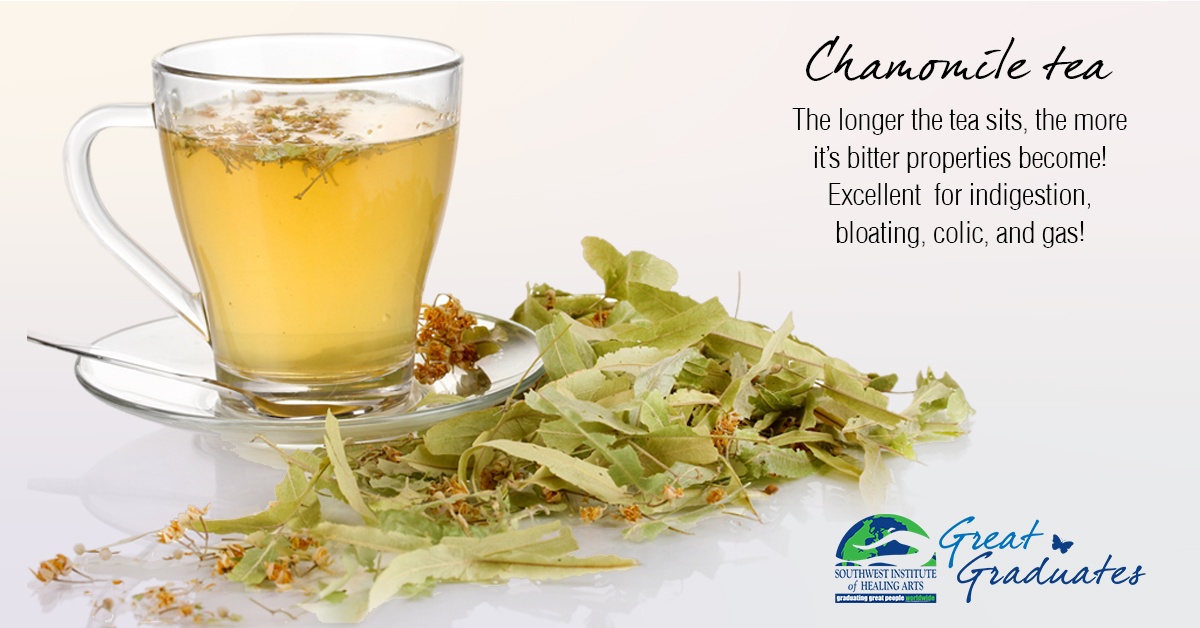“I grew up using herbs and had wanted to become an herbal pharmacist. The training I was looking into was in China, and then life happened, and going was discouraged. Then in my second half of revolving around the Sun, I walked by SWIHA and noticed the sign that I never paid attention to, it said ‘Herbalism and Reiki’. I had just started a new chapter in life and finally saw what I needed to do to get on the path to my original plan A.”
Read More
Topics:
western herbalism,
Great Graduate,
Herbalism,
Reiki,
Holistic Entrepreneurship,
Herbalist,
Amanda Hope
“My life before SWIHA was…. A LOT of daily crippling anxiety and waves of depression. Not to sound dramatic, because that’s really how it was. During COVID salons shut down, so I couldn’t do hair which had been my main source of income for the 6 years prior. I started making soaps and learning about essential oils I could include for depression and anxiety. This led me to research what else plants could do for my mental health.”
Read More
Topics:
western herbalism,
holistic entrepreneur,
Great Graduate,
SWIHA,
Herbalism,
Apothecary
Migraines take many forms in both acute and chronic conditions. Herbs, like Feverfew, Butterbur, Lesser Periwinkle, and Ginger can work as remedies in both arenas. This is a subject of great importance to me personally. I have suffered from chronic migraines for 12 years. I struggle with a baseline headache 24 hours a day 365 days a year and I have yet to find a “magic bullet”. While I do not believe there really is a “magic bullet,” I do believe that there is help available to migraineurs for this severe and debilitating disease. That help will come in the form of ancient plant medicine with a history of potent treatment for many diseases and ailments. While there are seven types of migraines, I will explore the herbal remedies that greatly affect the pain and suffering that individuals feel during an acute or chronic attack.
Read More
Topics:
western herbalism,
Holistic Healing,
Herbalism,
Holistic wellness,
Arizona,
Migraine,
Tempe,
Herbal Medicine,
Herbalist,
herbal remedies,
Herbs
“Holistic living means that your spiritual, relational, emotional, intellectual, physical, and financial lives are working together.” - Tsh Oxenreider
Kryss Huang was not a stranger to living a holistic lifestyle when she came to SWIHA. This community was a home away from home, for Kryss. She explains, “I love SWIHA, SOY, and SWINA. I feel at home each time I go to any of these beautiful places.” Kryss had been living a holistic lifestyle for the majority of her life. It felt like a natural choice to pursue studies at Southwest Institute of Healing Arts. About 10 years ago, Kryss actually attended the Western Herbalism and Nutrition programs and felt incredibly comfortable at SWIHA. Her life path eventually led her back to SWIHA to enroll in the Hypnotherapy program.
Read More
Topics:
Southwest Institute of Healing Arts,
western herbalism,
Hypnotherapist,
Holistic Nutrition,
SWIHA,
Herbalism,
Hypnosis,
mind body spirit,
Nutrition,
Hypnotherapy,
Arizona,
Breathwork,
Holistic Living,
Tempe,
SWIHA CommUNITY,
Herbalist,
Holistic Lifestyle
Plant medicine is far from a new method of healing, yet we see a renewed interest in recent years to return to the ‘root’ of wellness – treating mind, body and spirit with holistic, natural practices. Beyond caring for our home—the Earth—we believe in an inherent right and responsibility to care for our wellbeing; knowledge of herbal remedies provides a self-empowering tool to provide self-care and therefore extend this learning onto others.
Read More
Topics:
western herbalism,
Herbalism,
Natural Healing,
Plant Medicine,
Herbalist
For over two decades, Southwest Institute of Healing Arts has held the belief that healing takes place within mind, body and spirit. After all, it makes intuitive sense when you consider that we are multifaceted beings with many different energetic components.
We’re thrilled to finally see allopathic medicine and modern neuroscience embrace holistic modalities and confirm what we’ve felt all along: that we must treat the full being for true transformation to occur. From major corporations employing nutrition advisors and life coaches, to chiropractors partnering with energy workers, we see traditional and modern healing coming together and igniting major change!
Read More
Topics:
Great Graduates,
Massage,
holistic health care,
Herbalism,
Psychology,
AOS degree,
entrepreneurship
Crystal Valentina Price knows that personal growth is a lifelong game—and, often, that game involves some pain. “They say that all suffering has a noble purpose,” she explains, “and it wasn’t until I was completely exhausted of being the victim of my own story that I truly stepped up into owning my story and creating my own reality.”
For Crystal, this process of letting go intersected with a new aspect of her identity: parenthood. “When I became a mother, I felt like I had lost a sense of who I was and was really yearning to rediscover my sense of Self,” she reflects. Through her yoga practice and yoga teacher training, she was able to do just that: “I have realized through this practice that all we have to do is show up! Energetically holding space for ourselves and others has the power to heal!”
Read More
Topics:
Sound Healing,
Herbalism,
Urban Farming,
Yoga Teacher Training,
yoga nidra,
yoga,
Motherhood,
Fabulous Faculty
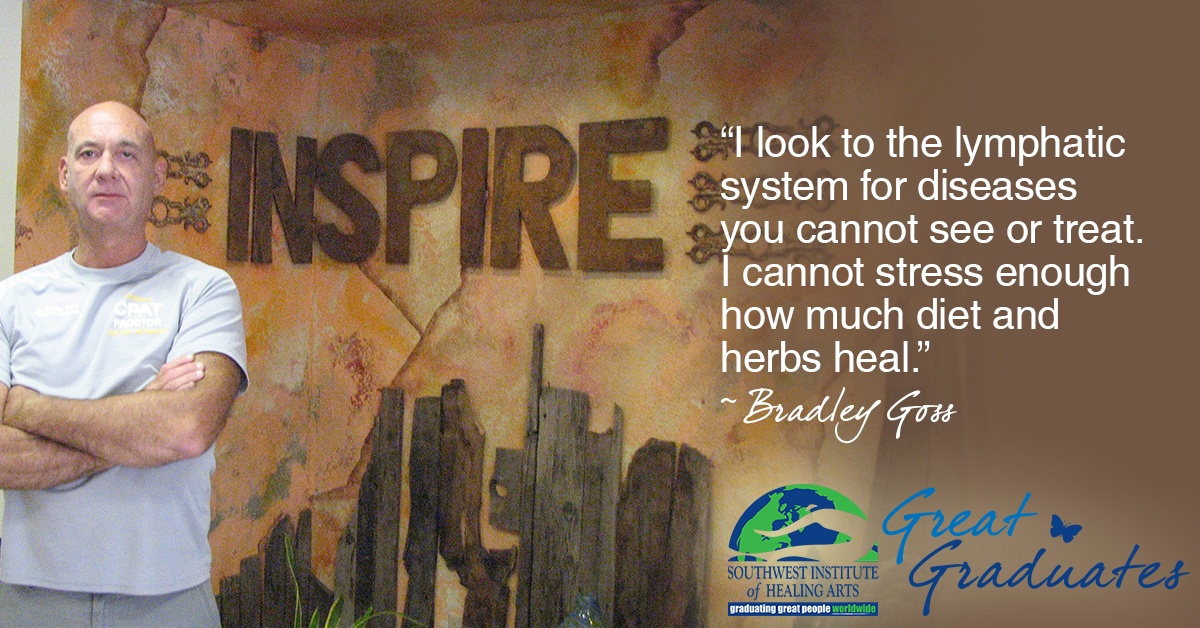
Bradley Goss first enrolled at Southwest Institute of Healing Arts, in the Associates degree program for Western Herbalism and Holistic Nutrition. He was already a Physical Trainer at a gym and a Detoxification Specialist, but he knew he wanted to continue his education. Before finding SWIHA, he was taking classes at Phoenix College where, to his dismay, he found he did not resonate with what the nutritionist teachers were teaching. “They would tell us that having a couple of cokes a day isn’t bad; there is no good fat; white bread is the same as whole wheat bread; and eating sugar won't make you fat. I didn’t want to be at a school, filling my brain full of things that I knew weren’t correct, just to have to relearn them later.” So Bradley started looking for another school. New York Integrative and SWIHA were his top two. He wanted a campus school with online options, but he really liked that one of his favorite teachers/authors, Dee McCaffrey (The Science of Skinny) worked here. Since he was already in AZ and NY would require a move, he chose to stay local, as he connected with our mission and philosophy. He reflected on his first few months at SWIHA: “I arrived, ‘not SWIHA material’. I believed in the goodness of foods, but not like I do now. I’d hear teachers say, ‘Be aware’ and ‘this food helps with consciousness’. I was like, ‘What am I missing? I’m not drunk, what is she talking about??’ I wasn’t aware, even though I thought I was.” The nutrition and herbalism fit together perfectly, as he still believes that diet and herbs is the curative solution to all dis-ease, however, the education took a lot effort. His feedback to new students or those in the herbalism program was, “Stick with it and don’t get discouraged, especially with the herbal medicine. The payoff is so worth it!”
Read More
Topics:
Great Graduate,
Herbalism,
Nutrition
Learn from Great Graduate, Laura Hightower
Laura Hightower was told about Southwest Institute of Healing Arts (SWIHA) when she expressed interest in wanting to learn more about herbalism to someone she knew. That led her to enroll and graduate from the Associates in Holistic Health Care with concentrations in Western Herbalism and Holistic Nutrition, 300-Hour Clinical Hypnotherapy and 100-Hour Transformational Reiki programs.
Herbalism was an interest of Laura’s ever since she walked into an herb shop at age 16. “I just found a natural connection to using herbs in order to heal naturally.” Reiki was something she had been doing since she was 9 and the attunements she received in her program helped amplify that. “I love how pain and excess energy just seems to effortlessly flow out of the body.” Pain is simply trapped energy and Reiki was the vehicle she learned to move it out. She had been interested in hypnotherapy ever since she went to a hypnotherapist when she was 20. She was guided by an ex-classmate who told her that her guides said she needed to take the nutrition program and learn a lot of valuable skills. It was that experience that led Laura back to school again for her Associates Degree.
After graduating, Laura created her business, Magickal Heart. Its focus is on inspiring others to grow and move past the things they have long-held onto so they can be empowered to change their lives to a whole, new level. She currently travels the Valley and beyond to see clients throughout Arizona.
Read More
Topics:
western herbalism,
Herbalism,
Reiki,
Hypnotherapy,
herb store,
Natural Healing
Chamomile (Matricaria recutita) is a common herb most folks are familiar with. It’s often seen in teas that support sleep, upset stomach, calming, and overall de-stressing. While this delightfully sunny, little herb can certainly do these things, it has many other highly useful benefits.
Have you ever accidentally over steeped a cup of chamomile tea? The longer the tea sits, the more its bitter properties will come through. Bitters are excellent to use in cases of digestive concerns such as indigestion, bloating, colic, and gas. Some bitters can be harsh and should be used with great care. Yet chamomile is very mild for a bitter. It is gentle and pleasantly flavorful, so it is often given to children suffering from colic. Some bitters are so unpalatable, many adults will avoid ingesting them, making chamomile a favorable choice.
Another use for this herb is for anti-inflammatory properties. This action can be external or internal. Externally, a salve can be used for burns, insect bites, and wound healing. It’s very effective and often used with calendula, which also promotes the healing process. Internally, this herb has an affinity for the digestive system. So think of chamomile for IBS, inflammation of the digestive tract, nausea, or indigestion. Another specific use is for the relief of gout and acidic buildup that some people suffer from after eating red meat. It is definitely important to buy a dried, high quality chamomile to get a therapeutic effect from drinking the tea. If you do buy pre-bagged teas, find a respectable brand and use several bags per cup.
Read More
Topics:
Chamomile,
Healing properties,
DIY,
Chamomile Tea,
Salve,
Recipe,
Herbalism,
Bitters,
Calendula,
Healing Salve

